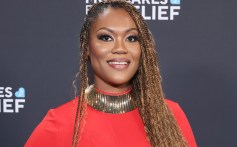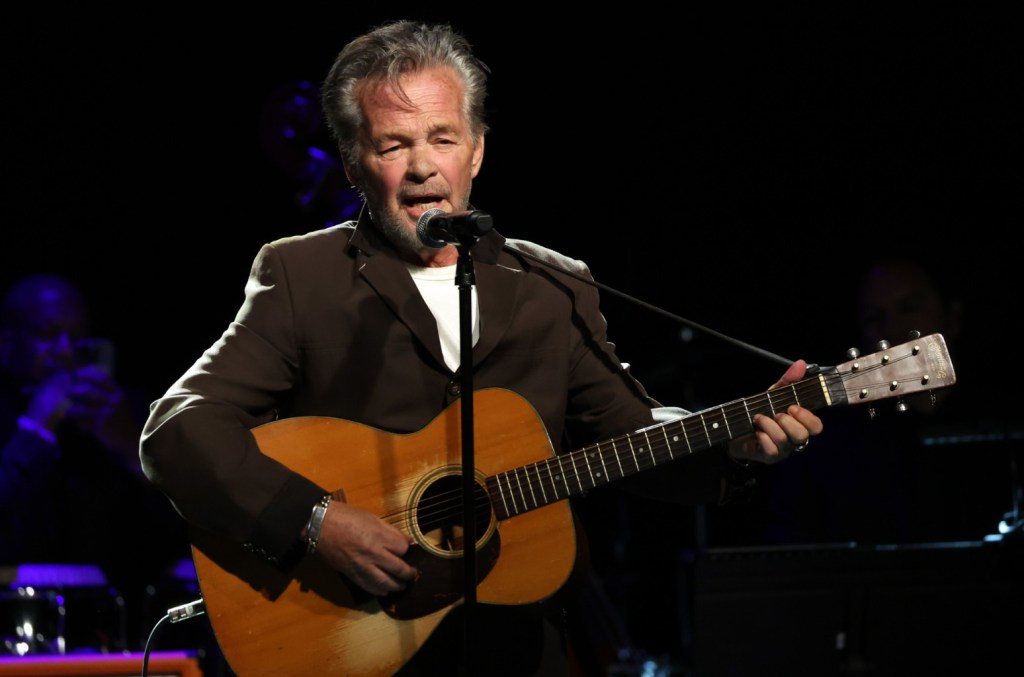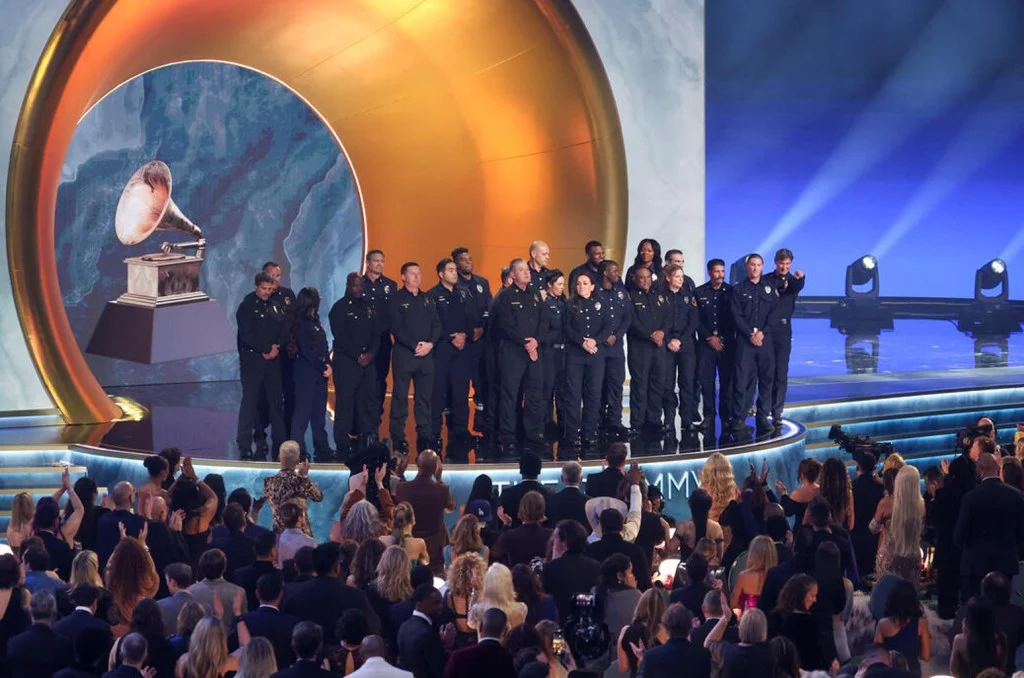recording academy
Trending on Billboard
The Recording Academy announced that more than 3,800 music creators and professionals have joined the academy as part of its 2025 New Member Class. This includes approximately 2,900 new voting members (who are eligible to vote in the upcoming 68th annual Grammy Awards) and approximately 900 new professional members.
Of those in the new class, 50% are age 39 and under, 58% are people of color and 35% identify as women. Looking only at voting members, 49% are age 39 and under, 60% are people of color and 30% identify as women.
Related
For the first time, invitations to join the Recording Academy were also extended to all voting members of the Latin Recording Academy. That explains why Latin leads all genres when new voting members were asked which genre they were most aligned with. Thirteen percent of new voting members said Latin, compared to pop and “other” (8% each); alternative, global music and rock (3% each); jazz, R&B and classical (2% each); dance/electronic, visual media, gospel/Christian, rap, contemporary instrumental, reggae, country, American roots and new age/ambient/chant (1% each); and musical theatre, children’s, spoken word and comedy (less than 1% each).
The influx of new members from the Latin Recording Academy voting body also explains why 28% of all new members (not just voting members) identify as Hispanic or Latin, second only to (and close behind) the percentage who identify as white or Caucasian (31%). These two groups were followed by Black or African American (20%), “I prefer not to disclose” (11%), Asian or Pacific Islander (5%), “I prefer to self-describe” (3%), Middle Eastern or Northern African and South Asian (1% each) and Indigenous or Alaska native (less than 1%).
“This year’s class reflects the vibrancy of today’s diverse music landscape,” Harvey Mason jr., CEO of the Recording Academy, said in a statement. “The addition of many Latin Recording Academy voting members underscores that music has no borders and that our mission to serve music people, regardless of where they are from, is stronger than ever.”
The addition of many Latin Academy voting members could help Bad Bunny land his second album of the year nomination. He is a top contender in that category with Debí Tirar Más Fotos, having been nominated three years ago for Un Verano Sin Ti.
Related
Of the total new member class (voting and non-voting members combined), 59% are men, 35% are men, 4% responded “I prefer not to disclose”; 1% identify as “non-binary or gender non-conforming; and less than 1% say “I prefer to self-describe.”
In terms of age, 50% of all new members (voting and non-voting combined) are 39 and under; 43% are (gasp) over 40; and 7% responded “I prefer not to disclose” or their age is unknown.
Looking just at new voting members, songwriters and composers are the top creative disciplines. Thirty-six percent of all new voting members classify themselves that way, followed by producers (20%), engineers (13%), vocalists (10%), instrumentalists (8%), arrangers (5%), music video pros (2%), album packaging, album notes writers and “other” (1% each); and conductors, spoken word (poets, narrators, comedians) and music supervisors (less than 1% each).
There are two types of Recording Academy membership – voting membership for recording creators and professional membership for music business professionals. Both types of members may participate in the organization’s year-round initiatives, but only voting members — comprised of artists, songwriters, producers, engineers and others active in the music industry — are eligible to vote.
The nominations for the 2026 Grammy Awards will be unveiled at 11:00 a.m. ET / 8:00 a.m. PT on Friday, Nov. 7, during a livestream on live.Grammy.com and YouTube. The full list of nominees will be published on Grammy.com immediately following the presentation.
Trending on Billboard
The Recording Academy has announced the appointment of Taylor Hanson and the reappointment of Dani Deahl as co-chairs of its National Advocacy Committee, a group of performers, songwriters, producers, and engineers dedicated to championing creators’ rights at both the state and federal levels. The National Advocacy Committee plays a key role in shaping the organization’s legislative priorities in collaboration with the Recording Academy’s Advocacy & Public Policy team in Washington, D.C.
Related
Singer, songwriter, producer, and entrepreneur Taylor Hanson has spent more than three decades in the music industry. He is a member of the brother trio HANSON, which topped the Billboard Hot 100 in 1997 with “MMMBop.” The exuberant smash brought the trio three Grammy nods – record of the year, best best pop performance by a duo or group with vocal and best new artist.
A native of Tulsa, OK, Hanson has long supported music education and advocacy through such initiatives as the Recording Academy’s Grammys on the Hill and Music Advocacy Day as well as Save the Music. Hanson has also worked to expand the Academy’s state advocacy work in Oklahoma and founded Food on the Move, a nonprofit dedicated to combating hunger and food deserts in Oklahoma. This marks Hanson’s first term as co-chair of the Academy’s National Advocacy Committee.
Serving a second consecutive term as co-chair, Dani Deahl is a DJ, producer, former Recording Academy Chicago chapter president, and current Academy national trustee. An advocate for creators’ rights, Deahl testified before the Illinois House and Senate in 2024 in support of HB 4875, a bill modernizing the state’s right of publicity law to protect creators from AI misuse. Gov. J.B. Pritzker (D-Ill.) signed the bill into law last year.
Deahl has also participated in the Recording Academy’s annual Grammys on the Hill initiative and took part in the inaugural Grammys on the Hill Future Forum in 2024, where she joined Grammy-nominated artist Kokayi and Todd Dupler, the Academy’s chief advocacy and public policy officer, on a panel to discuss the positive potential of AI in music and creativity. Deahl has also served as the head of communications and creator insights at BandLab since 2022.
Additional new National Advocacy Committee members include Sean Patrick Flavahan, Matt Maher, Maggie Rose and Divinity Roxx. They join Dr. Chelsey Green, Recording Academy chair of the board of trustees; Harvey Mason jr, Recording Academy CEO; and Dupler as ex-officio members.
Trending on Billboard The Recording Academy’s immersive pop-up experience, Grammy House, will expand globally in 2026 with the launch of Grammy House Giza in Egypt. Previous Grammy House activations have occurred in Los Angeles and New York. Related Grammy House Giza will unite artists, producers, songwriters and industry leaders from around the world for several […]

The academy is combining two categories, best recording package and best boxed or special limited edition package into one category, best recording package. Boxed sets were split off into a separate category in 1995.
It is also reviving an old category, best album cover. The Grammy Award for best album cover dates back to the first Grammy Awards in 1959. (The first winner: Frank Sinatra, for serving as art director on his own album, Frank Sinatra Sings for Only the Lonely.) From 1962 to 1965 it was separated into classical and non-classical categories. From 1966 to 1968 it was separated into graphic arts and photography categories. In 1974, the name of the award was changed to best album package. It was changed again in 1994 to best recording package.
The rule for Best Recording Package: “An art director’s award – for albums or singles. This category recognizes excellence in the field of art and packaging for albums or singles. Physical product in any configuration (standard, special edition, limited edition, or boxed sets), of any genre of music, released for the first time during the eligibility year (even if recordings were previously released) is eligible provided the packaging is predominantly new.
“The elements judged in this category include the package design, photography and/or graphic art of the entire package as well as any materials included. If the album art/packaging has been previously released, or is being reissued with only minimal new design elements, it is not eligible.
“An entry in this category is eligible if the physical product release during the applicable eligibility period either meets the general distribution requirement or was made available for purchase solely via the applicable artist’s website or such artist’s record company’s website, so long as the release meets all other eligibility requirements, is sold as a stand-alone product, and the sales link is available to all consumers (e.g., fan club-only releases or releases through a subscription series are not eligible).
The rule for Best Album Cover: “An art director’s award – for albums only. This category recognizes excellence in cover art for albums of recordings in any genre of music, released for the first time during the eligibility year (even if recordings were previously released).
“The elements judged in this category include the creativity, design, illustration, photography, and/or graphic art of the album cover.
“The album cover must be predominantly new: If the album cover art has been previously released, or the recording is being reissued with only minimal new cover art, is not eligible.
“Eligible album covers can be from digital-only or streaming-only full-length releases as well as albums that have physical configurations. Submission of an album cover in this category would not disqualify the physical package of the same release from being submitted in best recording package. Eligible entries for this category require a high-resolution digital file of the album cover be uploaded with the entry.”
In addition, the Package Craft Committee is changing from three regional committees to one national committee.
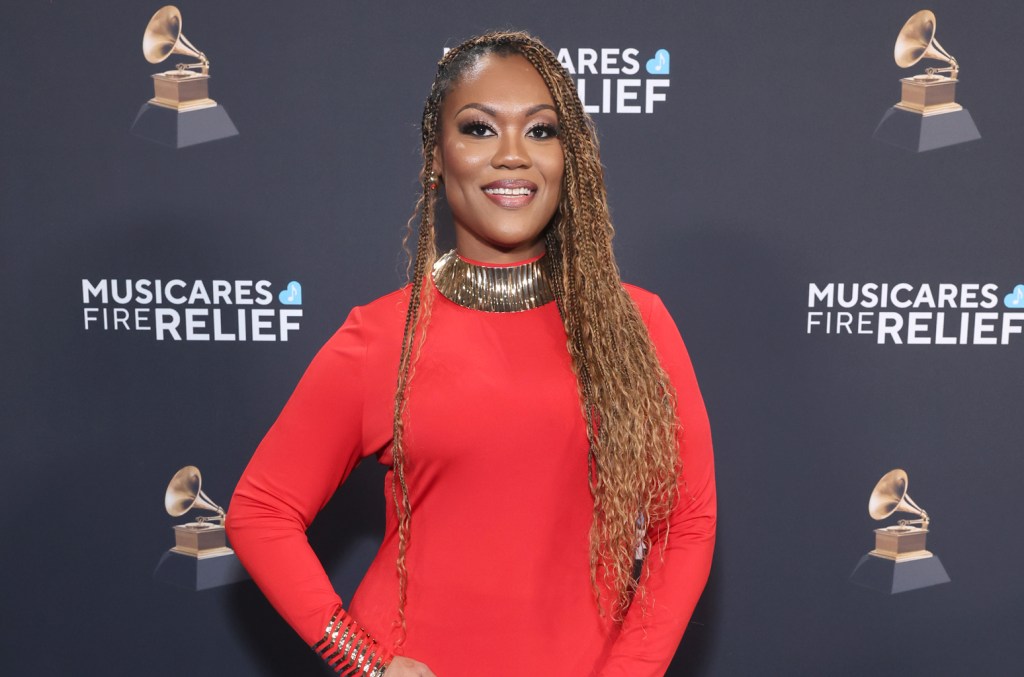
Dr. Chelsey Green is the first Black woman elected as the Recording Academy’s chair of the board of trustees. She succeeds Tammy Hurt, who has served in that role since 2021. This marks the first time in Recording Academy history that two women have served back-to-back in the top post.
Dr. Green, 39, is also the youngest person ever elected chair. Dr. Green, who was vice chair last term under Hurt, was selected at this year’s annual board of trustees meeting. Her term officially began on Sunday (June 1). At the same time, Evan Bogart was elected vice chair; Jennifer Blakeman was elected secretary/treasurer; and Hurt was elected chair emeritus.
In Academy history, just two other women (besides Hurt and Green) have served as chair. Leslie Ann Jones was chairwoman (the title at the time) from 1999-2001. Christine Albert was chair from 2013-15.
Trending on Billboard
Green is the third Black officer to be elected chair, following Jimmy Jam (2007-09) and Harvey Mason jr. (2019-21). Mason went on to become the academy’s CEO.
“I am honored to welcome both our newly elected board and national officers to the Recording Academy, made up of passionate, talented leaders who care deeply about music and the people who create it,” Mason said in a statement. “Together, their extensive background in the industry will help us to continue to push the Academy forward and drive meaningful change.”
The Recording Academy’s elected officers dedicate their time in service to the academy and play an important role in helping to shape the organization’s strategic direction. They collaborate with the CEO and senior academy management, who work to fulfill the organization’s mission of serving music people through advocacy, education, and direct assistance and by shining a spotlight on musical excellence.
Here’s a closer look at the top four officers:
Dr. Chelsey Green is a recording artist, entrepreneur and educator. As the bandleader, violinist, violist, and vocalist behind her ensemble Chelsey Green and The Green Project, Dr. Green fuses her classical training with jazz, R&B, soul and funk. She has released five studio projects, with one (2022’s Chelsey Green & the Green Project) landing on Billboard‘s Contemporary Jazz Albums chart in 2014. Dr. Green has performed alongside artists such as Kirk Franklin, Lizzo, Samara Joy, Stevie Wonder, The War and Treaty, and Wu-Tang Clan, and has made orchestral debuts with the National Symphony Orchestra, the Alexandria Symphony, the United States Air Force Band, and more. An advocate for music education and equity, she leads educational concerts, artist residencies, and community workshops, and is an associate professor at Berklee College of Music.
Evan Bogart is a songwriter, producer and creative executive, who has had a hand in creating hits for Beyoncé, Britney Spears, Madonna, Rihanna and more. Son of legendary Casablanca Records founder Neil Bogart (who died in 1982 when Evan was just four), Evan got his start in the music industry as a teenager in the Interscope Records A&R department, working on projects by 2Pac and Eminem, before moving into artist management and booking, representing such acts as Maroon 5 and OneRepublic. Currently, he is CEO of Seeker Music. Bogart has been named to Billboard’s 40 Under 40 list twice and to Billboard’s R&B/Hip-Hop Power Players list. Bogart recently served as the executive music producer and composer for Spinning Gold, an independent feature biopic based on his father, and for the musical-feature film, Juliet & Romeo, for which he co-wrote and produced all of the original music. Bogart also serves as chair of the academy’s Songwriters & Composers Wing.
Jennifer Blakeman is the chief rights and royalties officer at Seeker Music. For more than four decades, she has fostered the careers of some of the world’s most popular artists and songwriters. She has served in numerous senior executive and creative roles for major and indie publishers, record labels and film studios, including Atlantic Records, one77 Music, Universal Music Publishing, Universal Pictures, and Zomba Publishing. An accomplished musician and ASCAP songwriter and publisher, Blakeman was signed with her band to Warner Bros. Records and subsequently toured in the ‘80s as a keyboardist for Billy Idol, Brian Wilson and Savage Garden, among many others. For two decades she has been an adjunct professor at New York University and has taught more than 1,000 students in the music business degree program.
Tammy Hurt is a TV producer and drummer. She made history as the first openly LGBTQ+ officer in Recording Academy history. She serves on the boards of the Latin Recording Academy, the Grammy Museum and MusiCares. Hurt is the founder of Placement Music, a boutique entertainment firm specializing in custom music and scoring for high-profile clients including FOX Sports, Paramount Pictures, CBS and the NFL. Her passion project, Sonic Rebel, fuses high-fidelity soundscapes with mashups and live drum remixes. Hurt was honored in early 2025 by Billboard, Alicia Keys’ She Is the Music and the Atlanta City Council. Additional accolades include Catalyst Magazine’s Top 25 Entrepreneurs and the Atlanta Business Chronicle’s Most Admired CEO award.
Every two years, the voting and professional members of the academy’s 12 chapters vote in their respective chapter board elections to elect their chapter’s governors. Of the trustees that serve on the national board, eight are elected by voting or by professional (non-voting) members of the academy and 30 are elected by the chapter boards. The remaining four seats are composed of the national trustee officers serving the roles of chair, vice chair, secretary/treasurer, and chair emeritus, and are elected by the board of trustees once every two years. National officer positions on the board of trustees are subject to two, two-year term limits.
The academy also released the names of the members of its 2025-27 board of trustees, including 19 newly elected or re-elected members. The full body includes seven Grammy winners: artists Ledisi and Avery Sunshine; songwriter Jonathan Yip; arranger Sara Garzarek; music supervisor Julia Michels; producer Cheche Alara; and engineer/mixer Reto Peter.
2025-27 Board of Trustees
Here is the full list of the Recording Academy’s 2025-27 board of trustees in alphabetical order by first name. An asterisk signifies those who were elected or re-elected this year. Others are midterm.
Dr. Alex E. Chávez*
Armand Hutton*
Ashley Shabankareh
Avery*Sunshine*
Carl Nappa*
Cheche Alara
Dr. Chelsey Green
Dani Deahl
Dave Gross
Divinity Roxx*
Donn Thompson Morelli “Donn T”*
EJ Gaines
Evan Bogart
Fletcher Foster
HENNY
Jennifer Blakeman
Jessica Thompson
Jonathan Yip*
Julia Michels*
Julio Bagué*
Ken Shepherd
Lachi*
Ledisi*
Maggie Rose*
Marcella Araica*
Maria Egan
Matt Maher*
Ms. Meka Nism
Mike Knobloch
Nikisha Bailey
Reto Peter*
Sara Gazarek
Sue Ennis*
Tamara Wellons
Tami LaTrell*
Tammy Hurt
Taylor Hanson
Teresa LaBarbera*
Terry Jones
Torae Carr
Wayna*
In 2014, John Mellencamp signed a lifetime recording agreement with Republic Records. He demonstrated why that was a smart investment on Republic’s part with a winning performance at the second annual Grammy Hall of Fame Gala. The event was held on Friday night (May 16) at the Beverly Hilton Hotel in Beverly Hills, Calif. — the site of the first Grammy ceremony in 1959.
Mellencamp performed as part of a salute to Republic Records, which was this year’s record company honoree. Conan Gray performed his 2020 hit “Heather” as part of that salute, though Muni Long, who had been announced as a third performer in the segment, did not appear. (Atlantic Records was the label honoree at last year’s inaugural Grammy Hall of Fame Gala, which was held at the Novo Theater at L.A. Live.)
The Grammy Hall of Fame Gala, presented jointly by the Recording Academy and the Grammy Museum, was conceived as a way to elevate the stature of the annual Hall of Fame inductions, which had long announced with little more than a press release. The Grammy Hall of Fame was established by the Recording Academy’s national trustees in 1973, initially to honor recordings that were released prior to the inception of the Grammy Awards in 1959. The selection criteria was long ago changed to include any recording that is at least 25 years old.
The Grammy Hall of Fame used to be the only major institutional award to honor classic recordings, but the arrival in 2002 of the National Recording Registry, administered by the Library of Congress, means the Grammy Hall of Fame no longer has this field all to itself.
Though it’s not their stated purpose, the Grammy Hall of Fame serves as a second chance for the Grammys to honor recordings they may have missed when they were first released. Of this year’s 13 honorees, 11 were released since the inception of the Grammy Awards. Of those 11, only two — Santana’s Supernatural (1999) and Emmylou Harris’ Wrecking Ball (1995) — had won Grammys when they were eligible. Only one other — Luther Vandross’ Never Too Much (1981) — had even been nominated.
Inducted recordings are selected annually by a member committee, with final ratification by the academy’s national board of trustees. Counting these 13 new titles, the Grammy Hall of Fame has 1,165 inducted recordings. The full list of past inducted recordings can be found here.
The artists could have as much or as little involvement in the Grammy Hall of Fame Gala as they wanted. Harris performed two songs from Wrecking Ball. R&B veteran Eddie Floyd performed his 1966 hit “Knock on Wood.”
Carlos Santana, honored for Supernatural, and Yusuf, the former Cat Stevens, honored for his 1970 album Tea for the Tillerman, accepted their awards with remarks on video. Santana thanked Clive Davis, who signed the band to both Columbia Records and, 30 years later, Arista Records. Of the Arista deal, which kicked off with Supernatural, he thanked Davis “and his belief that we could rock the world. Together we created a masterpiece of joy.”
JAY-Z, who is tied with Ye (formerly Kanye West), for the most Grammy wins by a rapper (25), didn’t even send in a video to acknowledge his Hall of Fame induction for his 1996 album, Reasonable Doubt.
The event attempted to serve multiple agendas. At one point, the proceedings were interrupted by a fund-raising drive for the Grammy Museum. That’s a worthy endeavor, but it undermined the program’s momentum.
Anthony Mason of CBS News hosted the event, with production led by Ken Ehrlich, who produced or executive produced the Grammy telecast for 40 years. Ron Basile, Lindsay Saunders Carl and Lynne Sheridan were also on the production team. Grammy and Latin Grammy winner Cheche Alara served as music director.
Here are eight highlights of the second annual Grammy Hall of Fame Gala.
John Mellencamp Honors Republic Records
Susanna Hoffs, Muni Long and more have been added to the lineup for the 2025 Grammy Hall of Fame gala, presented jointly by the Recording Academy and Grammy Museum. The event is set for Friday (May 16) at the Beverly Hilton in Beverly Hills, Calif. – the site of the first Grammy Awards ceremony in 1959.
Performances will pay tribute to the 2025 Grammy Hall of Fame inducted recordings, which were announced on Feb. 13.
Trending on Billboard
Susanna Hoffs of The Bangles will perform Cat Stevens’ “Wild World” from the singer-songwriter’s 1970 album Tea for the Tillerman. Emmylou Harris, her producer Daniel Lanois, and jazz drummer Brian Blade will perform selections from Harris’ 1995 album Wrecking Ball. Leslie Odom Jr. will perform the title track from Luther Vandross’ 1981 album, Never Too Much, and Ledisi will perform Clara Ward’s 1951 song “How I Got Over.”
Latin Grammy nominee Leslie Grace will deliver Miami Sound Machine’s 1985 breakthrough hit, “Conga.” Percussionist Cindy Blackman and guitarist Orianthi, joined by longtime Santana band member Andy Vargas, will perform Santana’s “Smooth” from the band’s 1999 album Supernatural; Blackman is married to Carlos Santana.
Eddie Floyd and Jody Stephens, drummer of iconic power-pop band Big Star will perform Floyd’s 1966 hit “Knock on Wood.” Stephens is also expected to perform a track from Big Star’s 1972 album #1 Record. The other five 2025 Grammy Hall of Fame inducted recordings are: J.D. Crowe & The New South’s J.D. Crowe & The New South; Jay-Z’s Reasonable Doubt; Fela Kuti & Afrika 70’s Zombie; Linda Martell’s “Color Him Father”;and Geeshie Wiley’s “Last Kind Words Blues.”
In addition, John Mellencamp, Conan Gray and Long will perform as part of a tribute to this year’s label honoree, Republic Records. Atlantic Records was the initial label honoree at last year’s gala, which marked the first time there was a stand-alone event to honor the inducted recordings. Last year’s gala was held at the Novo Theatre at L.A. Live.
Jon Batiste, the inaugural recipient of the Ray Charles Architect of Sound Award, will also perform. This new annual honor, created in partnership with The Ray Charles Foundation, recognizes an artist whose creative legacy reflects the visionary innovation of Ray Charles.
Returning as host is CBS News journalist Anthony Mason. The show will again be produced by Ken Ehrlich, alongside Ron Basile, Lindsay Saunders Carl and Lynne Sheridan. Ehrlich produced or executive produced the annual Grammy Awards telecast for 40 years. Cheche Alara, a Grammy and Latin Grammy Award-winning composer, producer and conductor, will serve as musical director for the event.
This year’s additions to the Grammy Hall of Fame meet the main requirements – they exhibit “qualitative or historical significance” and are at least 25 years old. Eligible artist(s), producer(s), engineer(s), and mixer(s) of these 13 recordings will receive a certificate from the Recording Academy.
The Grammy Hall of Fame was established by the Recording Academy’s national trustees in 1973. Inducted recordings are selected annually by a member committee drawn from all branches of the recording arts with final ratification by the academy’s national board of trustees. Counting these 13 new titles, the Grammy Hall of Fame totals 1,165 inducted recordings. The full list of past inducted recordings can be found here.
The Grammy Hall of Fame Gala serves as a fundraiser to support the Grammy Museum’s national education programs. It includes a cocktail reception, dinner, and concert program. Tickets are on sale now. Individual tickets are $1,250. For more information, visit this site.
An online auction is currently underway, featuring a collection of guitars signed by such artists as Chappell Roan, Charli xcx, Chris Martin, Sabrina Carpenter, and Lady Gaga & Bruno Mars. They are also auctioning off platinum tickets to the 68th Grammy Awards and more. Proceeds will benefit the Grammy Museum’s education programs. For more information, visit this site.
People watching the 67th annual Grammy Awards, which aired three months ago today, contributed nearly $10 million for Los Angeles wildfire relief efforts. MusiCares reports that that money has made its way to recipients across the region, helping both music professionals and the broader local population affected by the horrific event.
MusiCares has distributed $6,125,000 to more than 3,100 music professionals across Los Angeles. In addition, $3,969,005 has been directed to three community-based organizations: California Community Foundation, Direct Relief and Pasadena Community Foundation.
In addition to the $10 million contributed by Grammy telecast viewers, MusiCares and the Recording Academy raised another $16 million during Grammy weekend thanks to the MusiCares Fire Relief campaign and the annual Persons of the Year gala, which this year honored the Grateful Dead. MusiCares has allocated $6 million of that $16 million to long-term fire relief efforts, while the other $10 million from Persons of the Year gala will be used for MusiCares’ year-round mission delivery.
Trending on Billboard
“The music community does amazing things when it comes together,” Harvey Mason jr., Recording Academy and MusiCares CEO, said in a statement. “This outpouring of love and support was humbling, whether it was performing or participating on the show, making contributions or donating their time and items for fundraisers. We are grateful for this amazing community and the Grammy viewers who felt inspired to give.”
Laura Segura, executive director of MusiCares, added: “What moved us most in the days following the Grammy telecast wasn’t just the scale of support, it was the spirit behind it. Thousands of people gave what they could, and together, their generosity became a lifeline for those in crisis, which reached far beyond our industry. That’s why we partnered with trusted community organizations who are helping Angelenos across the region access the care, resources and support they need to rebuild.”
MusiCares reports that the median contribution during the Grammy telecast was $53.50.
The Grammy telecast, which was held less than a month after the wildfires broke out on Jan. 7, included several segments dedicated to raising awareness of the crisis. Two of the night’s performances were specifically inspired by the events – Dawes’ opening performance of Randy Newman’s “I Love L.A.” and Bruno Mars and Lady Gaga bypassing their own nominated smash “Die With a Smile” to perform the Mamas & the Papas’ “California Dreamin’.”
While MusiCares responded within days of the fire’s outbreak to provide immediate assistance, the long-term needs of music professionals are only now coming into sharper focus. From loss of work and instruments to the emotional toll of displacement and trauma, the wildfire tragedy continues to affect lives. MusiCares continues to provide aid through customized case management, mental health support and financial assistance to those with lasting need.
MusiCares Fire Relief funding comes from multiple sources, of which the Grammy telecast was the largest. Fire Relief distributions are made as part of an independent and confidential client case management model overseen by MusiCares. MusiCares expects many more millions to be distributed over the coming year as they continue to serve the fire victims.
To address the broader community impact beyond the music industry, MusiCares and the Recording Academy partnered with three organizations already embedded in the neighborhoods hardest hit by the fires. Here are quotes from leaders in those organizations on the status of recovery efforts.
California Community Foundation (CCF)
“Recovery isn’t just about rebuilding homes,” said president and CEO Miguel Santana. “People who lost their homes also lost schools, churches, stores — the places that connected them to their neighbors to form the community they treasured. As we bring activity back to places like a park, a church, or a school, people can re-connect as a community. Those chances to be together can give people strength and hope as they continue the difficult process of rebuilding their individual lives.”
Direct Relief
“Recovery from wildfires involves more than rebuilding physical infrastructure—it requires addressing complex social challenges such as housing instability, food insecurity, and healthcare disparities,” said Dr. Byron Scott, CEO. “Community health centers and free and charitable clinics serve as vital anchors, providing not just medical care but comprehensive support including mental health counseling, housing assistance, and nutritional services.”
Pasadena Community Foundation (PCF)
“Nonprofits in Pasadena, Altadena, and Sierra Madre have been our partners on the ground for more than 70 years,” said Jeannine Bogaard, VP of community impact. “Throughout the last three months, PCF has seen these organizations meet the moment in countless ways—disbursing cash assistance and emergency supplies, securing stable housing, addressing the unique challenges of older adults, rescuing and tending to lost and injured pets, and so much more.”
For more information on the MusiCares Los Angeles Fire Relief Effort or to donate, visit www.musicares.org.
Republic Records will be the label honoree at the 2025 Grammy Hall of Fame Gala, which will take place on Friday, May 16 at The Beverly Hilton Hotel in Beverly Hills, Calif. John Mellencamp and Conan Gray are set to perform at the event to lead the tribute. Atlantic Records was the initial label honoree […]
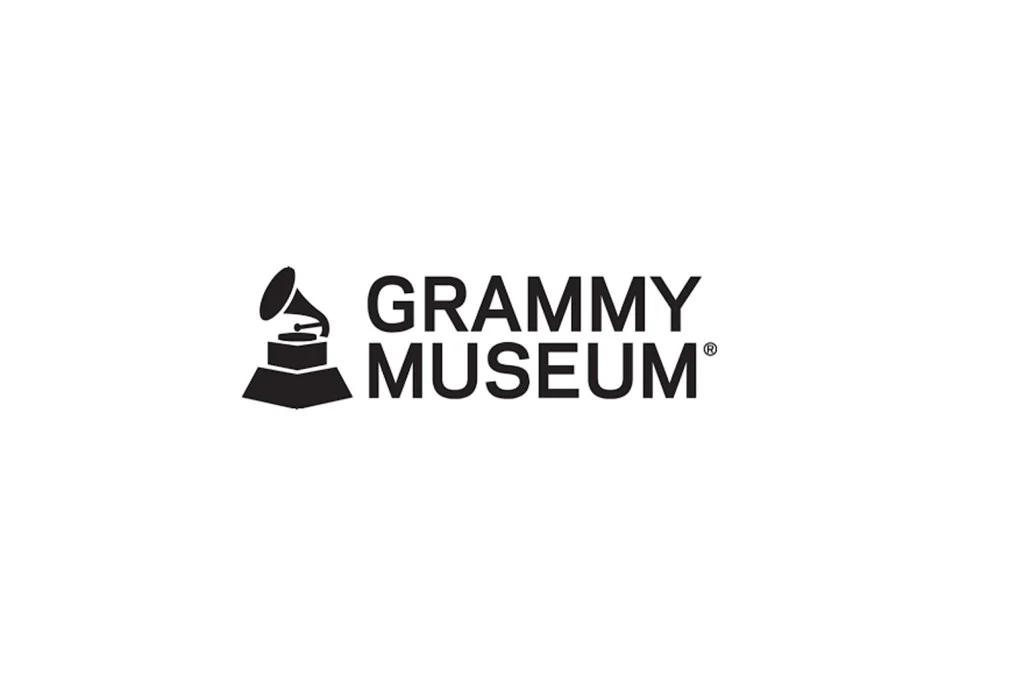
Country Music Foundation, Inc., Soulsville Foundation, International Bluegrass Music Association, Louisiana Folk Roots and the Memphis Listening Lab are among 15 organizations or individuals that were chosen to receive grants by the Grammy Museum Grant Program. A total of $200,000 in grants will be awarded this year. This year marks the 37th year of the program.
“Generously funded by the Recording Academy,” to use the Grammy Museum’s phrase, the Grammy Museum Grant Program provides funding annually to organizations and individuals to support efforts that advance the archiving and preservation of the recorded sound heritage of the Americas for future generations, in addition to research projects related to the impact of music on the human condition.
“The Grammy Museum and Recording Academy have continued their partnership to provide fundamental funding for music research and preservation projects across the United States and Canada,” Michael Sticka, president/CEO of the Grammy Museum, said in a statement. “ … We are honored to support these remarkable projects that continue to shape the future of music, science and technology.”
Trending on Billboard
In 2008, the Grammy Museum Grant Program expanded its categories to include assistance grants for individuals and small to mid-sized organizations to aid collections held by individuals and organizations that may not have access to the expertise needed to create a preservation plan.
Here are the 2025 recipients:
Scientific Research Grantees
CERVO Brain Research Center — Quebec City, Quebec
Awarded: $20,000
Their goal is to uncover how choir singing impacts communication and auditory cognition in older adults, supporting healthy aging through a randomized training study. This project aims to inform community choirs and music-based interventions, aligning with the foundation’s mission to enhance quality of life through music.
Jewish Rehabilitation Hospital – CISSS Laval — Laval, Quebec
Awarded: $19,500
Stroke typically leads to persistent deficits in arm and hand function. This project will examine the feasibility, acceptability and preliminary effectiveness of a six-week piano training intervention aimed at improving manual dexterity and the functional use of the arm and hand. For the first time, such intervention will be delivered as part of a home-based, early, and intensive rehabilitation program for individuals with stroke.
New York University — New York, N.Y.
Awarded: $9,000
Many people struggle with speech-language disorders due to developmental issues or brain injuries. Although music therapy can help these individuals regain speech functions, its effectiveness varies. By combining neuroimaging and machine learning, this study will explore how the brain can bypass damaged speech language networks by leveraging musical networks to enhance communication.
University of South Florida — Tampa, Fla.
Awarded: $9,000
This randomized trial will examine the effects of a novel woodwind program on neural responses and respiration function in adults 50+ with Long-term COVID (LTC). Adults will complete measures of cognitive processing (EEG) and respiration function (spirometer), pre- and post-10 weeks of either Nuvo jsax lessons or an attentional control task.
University of Toronto — Toronto
Awarded: $20,000
Rhythmic Auditory Stimulation (RAS) uses rhythmic sound cues to help people with Parkinson’s disease (PD) start and maintain stable movement. This project is the first to examine how these cues impact brain chemistry in PD, revealing the brain’s response to these cues. Their findings could improve the use of RAS as part of PD care, refining clinical applications that work alongside standard medication to support movement and enhance quality of life in PD.
Preservation Assistance Grantees
Lex Gillespie — Washington, D.C.
Awarded: $5,000
The project will preserve 75 interviews from the 10-hour Peabody Award-winning public radio series, “Whole Lotta Shakin’.” It tells the story of rockabilly, the exciting 1950s mix of blues, gospel and country that is the cornerstone of rock and roll. This diverse collection features singers, musicians, producers, DJs, and record company owners. The goal: to digitize these decaying recordings for use by scholars, content providers and the public.
Memphis Listening Lab — Memphis, Tenn.
Awarded: $5,000
Grammy Museum Preservation Assistance funding will enable the Memphis Listening Lab (MLL) to hire an expert consultant to conduct a preservation assessment of MLL’s extensive collection of recorded music. The consultant will provide MLL with a written report detailing their observations and recommendations for preserving MLL’s collection, which is freely accessible to the public.
Preservation Implementation
Country Music Foundation, Inc. — Nashville, Tenn.
Awarded: $20,000
The Country Music Hall of Fame and Museum (CMHFM) sought funding to assess, catalog, re-house, and make accessible a collection of 18,000 12-inch radio transcription discs containing historically significant, non-commercial recordings. This collection features interviews and performances with various country artists. Building on a successful project with 16-inch discs, CMHFM aims to begin Phase 2 of cataloging this larger collection.
Forgotten Futures Fund Inc. — Brooklyn, N.Y.
Awarded: $20,000
Louis and Bebe Barron were American electronic music pioneers. This project digitizes nearly 800 magnetic tapes. It will make available to the public, for the first time, their sci-fi, experimental and commercial sounds. The Barrons, moving in parallel to European composers of musique concrète, were DIY artists who lacked institutional support.
International Bluegrass Music Association — Nashville, Tenn.
Awarded: $20,000
The “Preserving the Legacy of Bluegrass Music” project will digitize and make accessible audio and visual materials from the 40-year history of the International Bluegrass Music Association (IBMA). Recordings include industry awards show performances and speeches, special performances, conference presentations, workshops, and other IBMA events, featuring first-, second- and third-generation bluegrass musicians from 1985 to the present day.
Louisiana Folk Roots — Lafayette, La.
Awarded: $15,000
Louisiana Folk Roots (LFR) will digitize and preserve at-risk audiovisual tape recordings of Cajun and Creole heritage folk music performances and presentations that occurred from 2001-15. This LFR archival collection of analog formats is not currently available online. Following digitization, this collection can become publicly accessible in partnership with the University of Louisiana at Lafayette’s Library and Institutional Repository.
Matthew White — Columbia, S.C.
Awarded: $10,000
Marian McPartland’s Piano Jazz stands as NPR’s longest-running cultural program, airing from 1978 to 2011. Currently, those programs exist on a server at SCETV (where the show was produced), along with more than 5,000 physical documents, including McPartland’s notes, photos, sheet music, and promotional materials. This proposal is to complete the digitization of these materials and create a free website where these materials can be accessed by the public.
Painted Bride Art Center, as fiscal sponsor for Philadelphia Jazz Legacy Project — Philadelphia, Pa.
Awarded: $10,000
Philadelphia Jazz Legacy Project, through its fiscal sponsor Painted Bride Art Center and in partnership with Temple University Libraries, sought a Grammy Museum Grant to digitize, preserve and make available several dozen interviews with Philadelphia jazz musicians. Conducted from the early 1980s to early 2020s, the interviews document the lives and careers of both world-famous and local Philadelphia jazz musicians.
Soulsville Foundation — Memphis, Tenn.
Awarded: $12,500
Acclaimed Memphis historians have donated interviews of Memphis music legends. These unstable digital tapes represent the richest collection of Black music history interviews ever received by the Stax Museum. The interviews will allow for enhanced storytelling in future exhibitions and online presentations.
T. Christopher Aplin — Pasadena, Calif.
Awarded: $5,000
American Indian Soundchiefs was a record label owned by Kiowa Linn D. Pauahty—the earliest, longest-running label launched with an ear toward Indigenous aesthetics. This project will help Pauahtyʼs granddaughter Mary Helen Deer, the Linn D. Pauahty Foundation, and Kiowa tribe digitize surviving American Indian Soundchiefs instantaneous discs, reel-to-reels, and cassettes featuring Kiowa-language songs for cultural revitalization purposes.

 State Champ Radio
State Champ Radio 
